Automotive-K-2022 – Recyclate Molding 13-08-2022 - Arhive
Automotive-K-2022 – Recyclate Molding
-Gov’t to impose restrictions on car sales
Some restrictions will be introduced for car sales to arrest the increase in car prices, Trade Minister Mehmet Muş has said, noting the respective regulation is ready.
Under the new regulation, companies, car rental firms, and car dealers will have to wait for a period of time to sell new cars they have bought, he added.
“Those entities are the main buyers of new cars. The new regulation will require that companies, car rental companies and dealers will be allowed to sell a new car only after it has covered 6,000 kilometers or six months after the newly bought car was first registered,” Muş explained.
Some cars are put up for sale as “second-hand cars,” immediately after they were purchased but this should be prevented, the minister said, noting that this kind of trade pushes up the prices. Automotive-K-2022 – Recyclate Molding
Once the new regulation takes effect, consumers will have easier access to new cars, according to Muş.
The Competition Board is looking into whether some companies engage in price collusion, the minister said.
The Competition Authority recently launched a probe into four online second-hand car trading platforms to investigate whether they hinder competition.
The new move on car sales will help prevent profiteering, commented Altuğ Erciş, head of the Authorized Automotive Dealers Association (OYDER).
“We fully support this decision, which is designed to curb the rise in prices in second-hand cars and increase the availability of cars in the market,” he added.

-Rigid PP recyclability upgraded to “Widely Recyclable”
How2Recycle, a project of the Sustainable Packaging Coalition (SPC, Charlottesville, Virginia; www.sustainablepackaging.org) that assesses the recyclability of packaging materials – and administers a US and Canada-recognised labelling programme – upgraded the recyclability of certain rigid polypropylene packaging to “Widely Recyclable”, from “Check Locally”.
The change in the designation of PP as a recyclable material is based on an upward trend across the US in access, sortation, and end markets for rigid PP.
Increased investment in the PP value chain is supported by the Polypropylene Recycling Coalition of The Recycling Partnership (Washington, D.C.; www.recyclingpartnership.org), which has awarded 24 grants, totalling USD 6.7 mn, since its creation in 2020 for improvements in sorting technology and community education. The investment improved curb-side access to PP recycling for approximately 8% of US households, impacting over 20 mn people and increasing recovered PP by an estimated 11.33 mn kg.
Teams from How2Recycle and the Polypropylene Recycling Coalition reviewed the SPC’s 2020/2021 Centralized Study of Availability of Recycling, which reported that PP rigid containers had a 59% access rate to recycling.
The teams used the SPC study as a benchmark against data from The Recycling Partnership’s National Recycling Database and determined the US access rate for rigid PP to now be 65%. A Circular Packaging Assessment tool from The Recycling Partnership confirmed the growth and strength of domestic end markets for PP.
How2Recycle said the eligibility change is in line with requirements from the US Federal Trade Automotive-K-2022 – Recyclate Molding
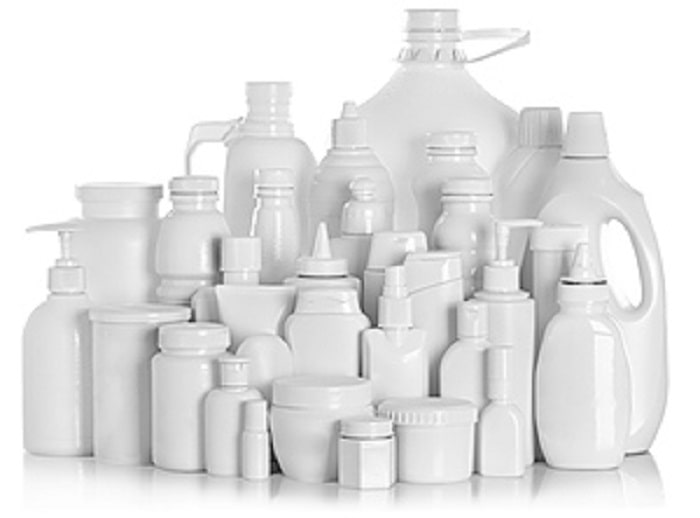
-Sinopec lowered benzene prices in China by CNYY200 per ton
China’s China Petroleum & Chemical Corp. (Sinopec), Asia’s largest refiner, Aug. 11 cut China’s domestic selling prices of benzene by 200 yuan (CNY), or USD30.9 a tonne, a company source told ICIS.
The selling price of the company’s benzene is cny7,950 per ton, ex-works, which corresponds to the value of imported material at USD1,033 per ton, CFR China, with immediate payment under the letter of credit, or approximately USD1,046 per ton, CFR China, with a deferral of payment under the letter of credit of 90 days.
Earlier it was reported that China Petroleum & Chemical Corp. (Sinopec on July 6 reduced domestic selling prices of benzene in China by 300 yuan (CNY) or USD46.37 per ton. Thus, from July 6, the selling prices of benzene for the supply of material to all regions of China are CNY9,300 (USD1,437.4) per ton, ex-works (ex-works).
Benzene is the raw material for the production of styrene, which, in turn, serves as the main raw material for the production of polystyrene (PS).
According to ScanPlast of market Report, in Russia, the estimated consumption of PS and styrene plastics in December last year amounted to 47.90 thousand tons, which is 3% more compared to the same month in 2020. Automotive-K-2022 – Recyclate Molding
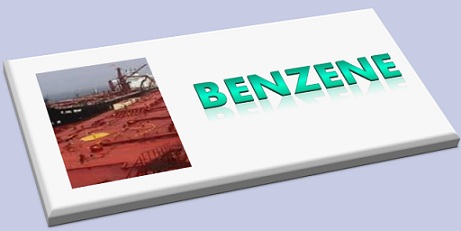
-Agilent Broadens Polymer Offerings with New Acquisition
Agilent has now expanded its portfolio in liquid chromatography and the GPC/SEC market with its recent acquisition of Polymer Standards Service.
Recently, Agilent Technologies, a supplier serving the life sciences, diagnostics, and applied chemical markets, announced the acquisition of Polymer Standards Service GmbH (PSS), a provider of solutions in the field of polymer characterization. PSS specializes in hardware and software solutions used in defining both the makeup and creation of molecular structures and “provides solutions for gel permeation chromatography and size exclusion chromatography used in applications to determine the molecular weight and size distribution of macromolecules.” Automotive-K-2022 – Recyclate Molding
“We’re extremely pleased to have the PSS team join Agilent to help us expand our leadership in liquid chromatography and the GPC/SEC market,” said Jacob Thaysen, president, Agilent Life Sciences and Applied Markets Group. “The advanced PSS hardware, software, columns, and reference materials we’re adding to our portfolio will enhance our offerings and ensure we deliver the broad spectrum of LC equipment, GPC/SEC analytics, and software our customers value.”
Agilent, which provides laboratories around the world with instruments, services, consumables, applications, and expertise, contends that its acquisition of PSS will broaden its existing product portfolio and customer offerings in the chemical and biopharmaceutical industries specifically in the analysis of natural and synthetic polymers like nucleic acids, proteins, monoclonal antibodies, polysaccharides, and synthetic plastic.

-Major Asian manufacturer has left the same September prices of PVC for shipments to China
A major North-East Asian manufacturer has left price offers for September shipments of polyvinyl chloride (PVC) to China stable, ICIS said.
Now its price offers for September deliveries to these regions are USD930 per ton, CFR China. Automotive-K-2022 – Recyclate Molding
On a franco-to-board (FOB) basis for Northeast Asia, price offers are USD880 per tonne for Southeast Asia and remote regions.
For September deliveries to cargo volumes over 500 tons, discounts are provided at the level of USD10 per ton.
Earlier it was reported that a large producer from Northeast Asia reduced price offers for August supplies of polyvinyl chloride (PVC) to China and Southeast Asia by USD230 per ton due to low demand. Now its price offers for August deliveries to these regions are USD930 per ton, CF China. On a franco-to-board (FOB) basis for Northeast Asia, price offers are USD880 per tonne for Southeast Asia and remote regions.
There is no discount on August deliveries. Automotive-K-2022 – Recyclate Molding
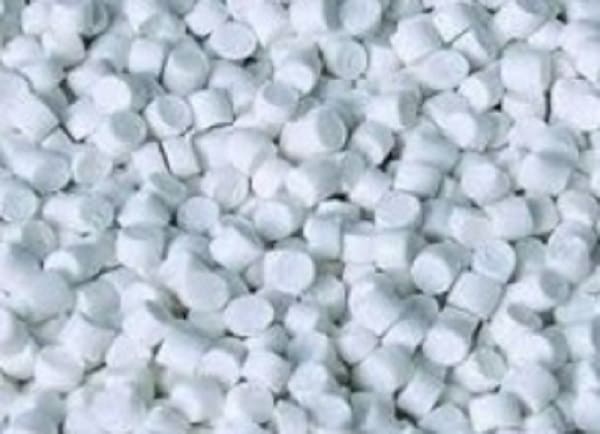
-Driving me K-razy: our automotive materials highlights ahead of K 2022
With e-mobility an ever-looming reality, it’s no surprise that automotive is set to play a massive role at K 2022. Dave Gray, head of content at InterplasInsights.com and British Plastics & Rubber, looks ahead at some of the drivers of innovation to expect at this year’s K Show.
Recycled grades on Rubber Street
Returning to its spot on ‘Rubber Street’ at K, Kraiburg will show its new post-industrial recycled (PIR) TPE grades for car interiors. The new grades contain up to 38% recycled material, derived from post-industrial waste acquired from third party businesses.
Applications for the new grades include anti-slip mats, floor mats, soft components in cup holders, fixation elements, and other designs requiring a hardness range between 60 and 90 Shore A. Kraiburg is also bringing its universal post-consumer recycled (PCR) TPE, containing up to 41% recyclate. The firm says the compounds are available in “natural colours” as well as in the grey colour characteristic of recycled plastics (which can be dyed as needed). The firm says the mechanics of these recycled-content grades “are in no way inferior to that of standard solutions”. Automotive-K-2022 – Recyclate Molding
Foam party in Hall 6
Sabic, meanwhile, will introduce its latest line of PP compounds for foam injection molding (FIM). The new mineral-reinforced Sabic PPc F9005, PPc F9007 and PPc F9015 grades are being marketed for use in automotive interiors with complex geometries, such as door panels and trim, seat and trunk cladding, A/B/C/D pillar covers and center consoles.
The company says the compounds could help resolve aesthetic issues for foamed interior parts, removing streaking and swirling in low-gloss textured (grained) surfaces. Talc filler in these grades acts as a nucleator that promotes the generation of finer bubbles, which contribute to a consistent surface appearance, according to Sabic. Custom colouring is available.
According to a cradle-to-grave life cycle assessment study (pending third-party review), the new materials can help OEMs lower carbon dioxide (CO2) emissions by as much as 15 percent.
Different grades have been developed for various foam moulding techniques – and the choice of technique can have an impact on final part weight. Short-shot moulding, which uses the same tooling as an injection moulded part, can reduce weight by up to 10 percent, according to the Sabic. Automotive-K-2022 – Recyclate Molding
PPc 9007 is formulated for short-shot FIM and low-impact applications. Core-back moulding, which requires part redesign and new tooling, can lower weight by as much as 30 percent. Both Sabic PPc 9005 and PPc 9015 grades are formulated for core-back moulding and deliver medium stiffness and impact.
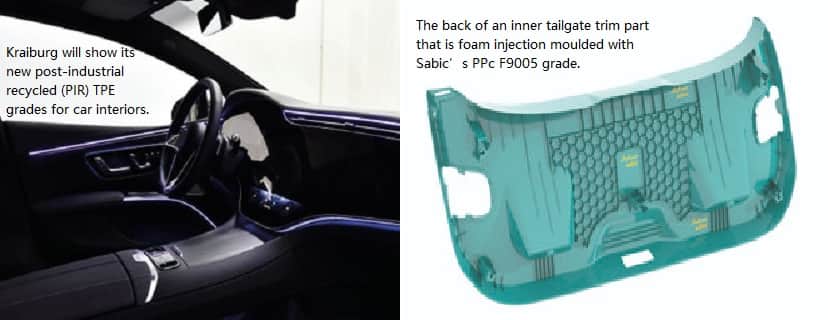
-Adapting Recyclate Molding to Customer Requirements
As part of a series of interviews leading-up to K 2022 Show, VDMA interviews Korbinian Kiesl, president of Billion. Automotive-K-2022 – Recyclate Molding
VDMA, Germany’s mechanical engineering industry association, recently interviewed Korbinian Kiesl, president of the French injection molding company Billion, as part of a series of interviews leading up to the K Show in Dusseldorf this October. Kiesl described the rapid progression of recycling adoption since K 2019, and how Billion helps its customers meet appearance expectations while injection molding with recyclate.
VDMA: Mr. Kiesl, the circular economy requires that plastic recyclates can also be processed. How far advanced is Billion in this field?
Kiesl: The processing of recyclates has switched from being a vision to an everyday topic. These days, we no longer even ask ourselves whether our injection moulding machines can process recycled material. This is now a matter of course. Around 80 percent of our customers already run recyclates on our machines, some more, some less, but 80 percent is an immensely high proportion considering that almost no one was doing this a few years back. Three years ago, these customers were looking at K to see what was technically possible. They asked if we had any experience with these new materials. We were hardly ever asked this question about our experiences. Now, however, we are capable of dealing with concrete projects very quickly.
VDMA: What role does quality play for your customers?
Kiesl: The more homogeneous the recyclate, the better the results for our machines, both in terms of physical properties and appearance, aesthetics. This requires a very good separation of used plastics. The machine can do everything, it’s just a matter of whether you want to see the used recyclate or not. In the cosmetics industry – which represents an important customer group of ours – the use of recyclates was hardly conceivable until a few years ago. There, it was always a question of maintaining a flawless appearance. Today, there are customers in this industry who even want a package to show that it contains something recycled. Automotive-K-2022 – Recyclate Molding
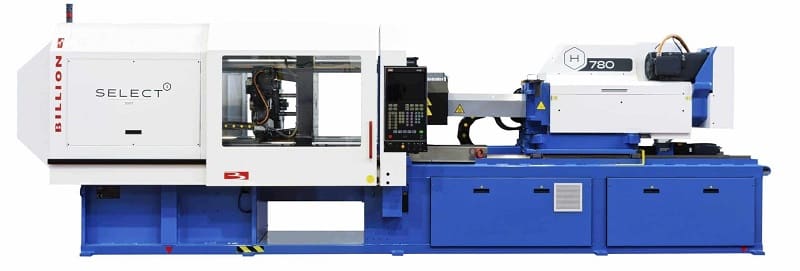
-Green battery based on bacteria and sweat
Bacteria are being used to power a green revolution in personal electronics. Here, researchers have succeeded in engineering a biofilm capable of producing long-term, continuous electricity from human sweat.
The development comes from the University of Massachusetts Amherst and the focus is with next generation wearable electronics, including medical sensors to personal electronics for the consumer Automotive-K-2022 – Recyclate Molding
Central to the development isa biofilm that harvests the energy in evaporation and converts it to electricity. The biofilm is an engineered version of the bacterium Geobacter sulfurreducens (a Gram-negative metal and sulphur-reducing proteobacterium). This bacterium produces electricity and has been used previously in creating so-termed “microbial batteries” to power electrical devices.
A limitation with previous batteries using the organisms is with ensuring that G. sulfurreducens is fed a constant diet. This challenge is overcome with the biofilm, which contains the necessary nutrients, and it can run to provide more energy than a comparably sized battery.
The mechanism for electricity generation with biofilms of electroactive microbes like G. sulfurreducens is their ability to oxidize organic substrates with electron transfer to electrodes.
The biofilms were grown anaerobically in two-chambered H-cell systems with a continuous flow of medium with acetate as the electron donor and a polished graphite stick anode as the electron acceptor. Automotive-K-2022 – Recyclate Molding
G.sulfurreducens grows in colonies that look like thin mats, and each of the individual microbes connects to its neighbours through a series of natural nanowires. The researchers have harvested these mats and uses a laser to etch small circuits into the films. Once the films are etched, they are sandwiched between electrodes and sealed in a soft, sticky, breathable polymer.
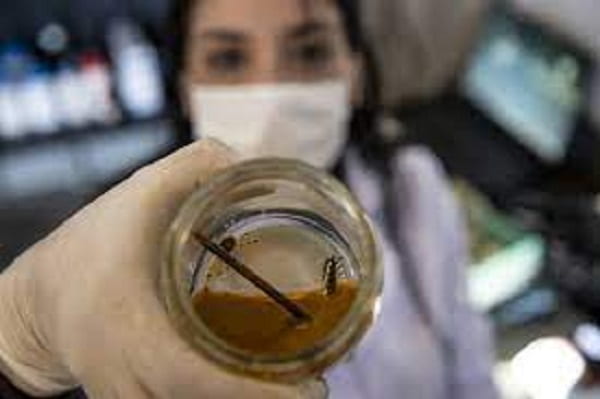
Automotive-K-2022 – Recyclate Molding
